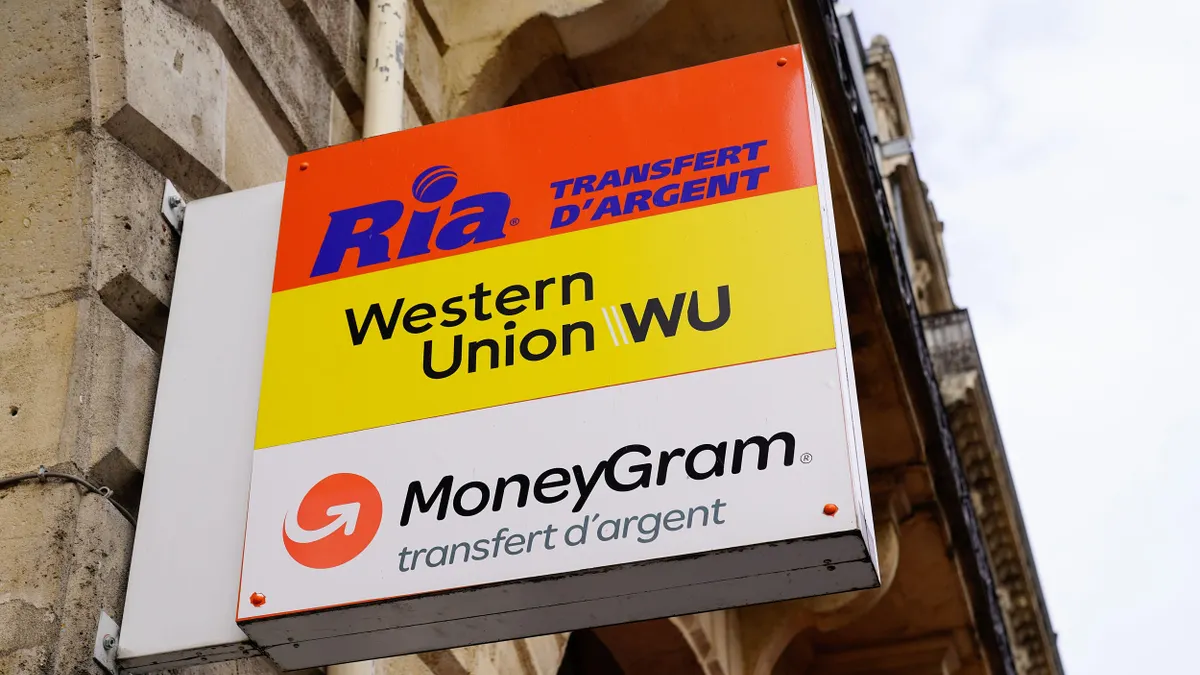Fiserv shareholders voted Wednesday to approve a shareholder proposal requiring certain severance agreements be put to a shareholder vote, despite the company's opposition to the measure.
An unidentified individual investor requested that the board seek shareholder approval for senior managers’ new or renewed pay packages — specifically, those that provide for severance or termination payments with an estimated value exceeding 2.99 times the sum of the executive’s base salary plus target short-term bonus, according to Fiserv’s proxy filing.
The non-binding proposal was approved during the Brookfield, Wisconsin-based company's annual meeting on Wednesday. The Fiserv vote outcome is striking because in most such votes a majority of shareholders will follow management's recommendation, which in this case was to vote against the shareholder proposal. While the company isn't required to implement any proposal that's non-binding, such a vote is a symbolic show of shareholder displeasure that can influence management.
The person who made the proposal argued that shareholder ratification of “golden parachute” severance packages “better aligns management pay with shareholder interests,” according to the proxy.
The shareholder added: “It is in the best interest of Fiserv shareholders to be protected from such lavish management termination packages.” A new policy curbing severance pay would keep management focused on improving company performance "as opposed to seeking a merger mostly to trigger a management golden parachute windfall,” the shareholder contended.
The proposal continued: “This proposal is more important at Fiserv because of the tendency to overpay management.”
The board had recommended shareholders vote against the proposal in the proxy, saying it "could discourage use of long-term equity incentive awards" and "would unduly restrict our ability to structure executive officer compensation." The board said the proposal was unnecessary in light of changes made to severance agreements in 2021 and adoption of a new severance policy that applies to executive officers.
Institutional Shareholder Services, which counsels some of the biggest investment funds in the U.S., recommended shareholders vote for the proposal. ISS said support was warranted because “severance arrangements can impose significant costs on shareholders and the proposal would apply only to new or renewed agreements.”
Although Fiserv made some changes related to severance agreements, CEO Frank Bisignano's other severance arrangements were unmodified, ISS said. "When including his equity vesting, his potential CIC (change in control) severance in FY21 would have been 31.25 times his salary plus target bonus," ISS said in its report on the proxy.
Bisignano's total compensation jumped about 67% last year to $20.4 million in 2021, up from $12.2 million in 2020. Part of the reason for the increase was that Bisignano only served in the top post for about half of 2020 after being appointed CEO in July 2020. He was also elected as chairman of the board by his fellow board members in March of this year and re-elected to that role at the annual meeting.
A Fiserv spokesperson pointed to the company's views in the proxy filing. "We look forward to discussing the results of the vote with our shareholders," the spokesperson said via email. She said the company has not shared the name of the shareholder who made the proposal.
In another recent example of shareholders breaking ranks with management on a shareholder proposal, JPMorgan Chase shareholders this week rejected a company compensation proposal for its six top executives — a plan that included $52.6 million in option awards granted to CEO Jamie Dimon. In the nonbinding vote, the company proposal garnered only 31% of shareholder support. Proxy adviser Glass Lewis had recommended shareholders vote against executive compensation.
Whereas many shareholder meetings are uneventful, Bisignano fielded a handful of questions submitted by shareholders Wednesday, ranging from queries about the company’s culture to its recent stock price performance. Over the past year, Fiserv's stock has dropped about 20%.
There were also questions related to what the company is doing to increase diversity, including on the board of directors and among senior management.
Bisignano noted the company has committed to improving diversity “across all levels of our organization,” and pointed to new efforts like talent programs designed to accelerate the development of diverse and female employees for expanded roles. The board of directors has added another female member, with women now making up one-third of the board, he said.
In response to a request for Bisignano’s comment on company culture and employee turnover, Bisignano said Fiserv has increased benefits over the past year, increasing the company's matching contribution for employees’ retirement funds and bolstering benefits for families and caregivers. “Our people platform remains a top priority,” he said.
Bisginano said Fiserv executives are pleased with the initial results of a company-wide employee survey and are diving deeper into the data to find out what the company does well and where it can improve. “As always, we are listening to our associates and meeting them where they are,” he said.
Clarification: The story was updated to make clear that the Fiserv shareholder proposal was non-binding.





















